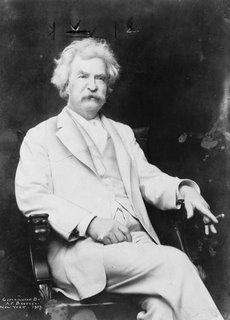Maybe the pivotal moment came when Steven Weinberg, a Nobel laureate in physics, warned that “the world needs to wake up from its long nightmare of religious belief,” or when a Nobelist in chemistry, Sir Harold Kroto, called for the John Templeton Foundation to give its next $1.5 million prize for “progress in spiritual discoveries” to an atheist — Richard Dawkins, the Oxford evolutionary biologist whose book “The God Delusion” is a national best-seller.
Or perhaps the turning point occurred at a more solemn moment, when Neil deGrasse Tyson, director of the Hayden Planetarium in New York City and an adviser to the Bush administration on space exploration, hushed the audience with heartbreaking photographs of newborns misshapen by birth defects — testimony, he suggested, that blind nature, not an intelligent overseer, is in control.
Somewhere along the way, a forum this month at the Salk Institute for Biological Studies in La Jolla, Calif., which might have been one more polite dialogue between science and religion, began to resemble the founding convention for a political party built on a single plank: in a world dangerously charged with ideology, science needs to take on an evangelical role, vying with religion as teller of the greatest story ever told.
***
There has been no shortage of conferences in recent years, commonly organized by the Templeton Foundation, seeking to smooth over the differences between science and religion and ending in a metaphysical draw. Sponsored instead by the Science Network, an educational organization based in California, and underwritten by a San Diego investor, Robert Zeps (who acknowledged his role as a kind of “anti-Templeton”), the La Jolla meeting, “Beyond Belief: Science, Religion, Reason and Survival,” rapidly escalated into an invigorating intellectual free-for-all. …
A presentation by Joan Roughgarden, a Stanford University biologist, on using biblical metaphor to ease her fellow Christians into accepting evolution (a mutation is “a mustard seed of DNA”) was dismissed by Dr. Dawkins as “bad poetry,” while his own take-no-prisoners approach (religious education is “brainwashing” and “child abuse”) was condemned by the anthropologist Melvin J. Konner, who said he had “not a flicker” of religious faith, as simplistic and uninformed.
After enduring two days of talks in which the Templeton Foundation came under the gun as smudging the line between science and faith, Charles L. Harper Jr., its senior vice president, lashed back, denouncing what he called “pop conflict books” like Dr. Dawkins’s “God Delusion,” as “commercialized ideological scientism” — promoting for profit the philosophy that science has a monopoly on truth.
That brought an angry rejoinder from Richard P. Sloan, a professor of behavioral medicine at Columbia University Medical Center, who said his own book, “Blind Faith: The Unholy Alliance of Religion and Medicine,” was written to counter “garbage research” financed by Templeton on, for example, the healing effects of prayer.
With atheists and agnostics outnumbering the faithful (a few believing scientists, like Francis S. Collins, author of “The Language of God: A Scientist Presents Evidence for Belief,” were invited but could not attend), one speaker after another called on their colleagues to be less timid in challenging teachings about nature based only on scripture and belief. “The core of science is not a mathematical model; it is intellectual honesty,” said Sam Harris, a doctoral student in neuroscience and the author of “The End of Faith: Religion, Terror and the Future of Reason” and “Letter to a Christian Nation.”
“Every religion is making claims about the way the world is,” he said. “These are claims about the divine origin of certain books, about the virgin birth of certain people, about the survival of the human personality after death. These claims purport to be about reality.”
By shying away from questioning people’s deeply felt beliefs, even the skeptics, Mr. Harris said, are providing safe harbor for ideas that are at best mistaken and at worst dangerous. “I don’t know how many more engineers and architects need to fly planes into our buildings before we realize that this is not merely a matter of lack of education or economic despair,” he said.
 How did life begin on earth? A fragment of a meteorite found in Canada may hold the clue. This from the CBC:
How did life begin on earth? A fragment of a meteorite found in Canada may hold the clue. This from the CBC:























